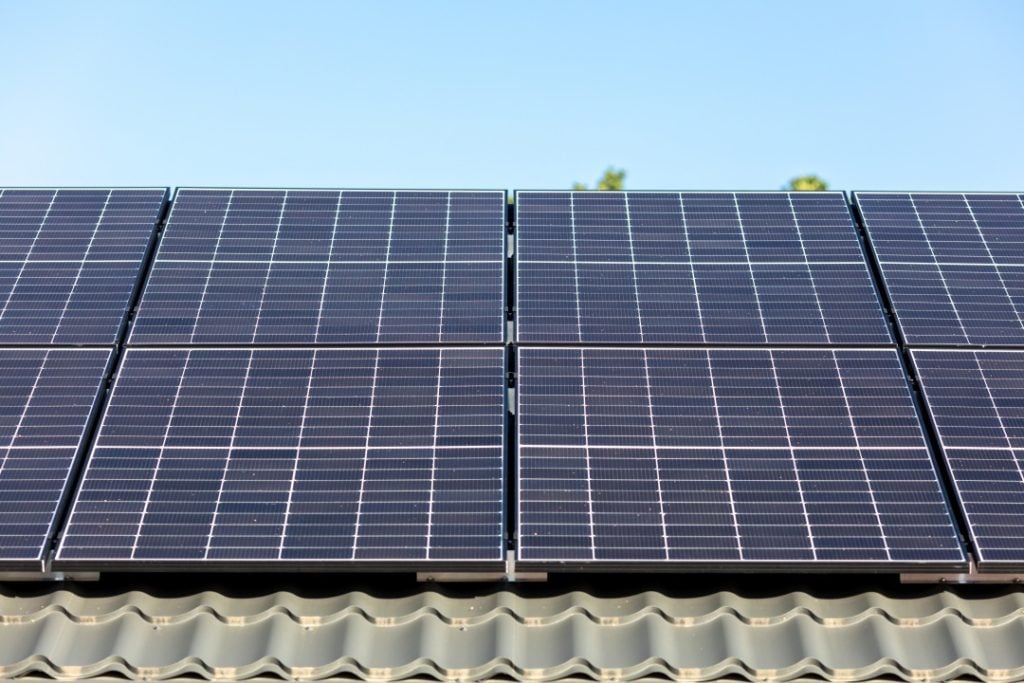With rising energy bills and increasing concerns about climate change, an increasing number of homeowners are turning to solar power as a sustainable, long-term energy solution. The idea of running an entire home on solar energy alone is both appealing and empowering. But is it possible to disconnect from the grid entirely using just solar panels? The answer depends on a variety of factors. In this article, let’s explore the details in various use scenarios to understand whether a solar-powered home is possible or not.
Understand the Realities of a Solar-powered Home
Let’s look at different scenarios to see when powering a home solely with solar panels is realistic—and when it may require extra planning or support.
Grid-Tied Homes with Net Metering
One of the most common setups is a grid-tied solar system with net metering. In this case, solar panels generate electricity during the day, and any excess energy is sent to the grid in exchange for credits. At night or on cloudy days, power is drawn back from the grid. While technically still connected, homes can offset nearly all their energy use with solar, resulting in minimal utility bills. This approach offers energy savings without needing large battery systems.
Off-Grid Homes in Sunny Locations
If you’re living in a region with consistent sunlight—such as the southwestern United States or parts of Australia—powering a home entirely with solar panels becomes much more feasible. In these areas, high solar exposure ensures strong energy generation year-round. Pairing the panels with a reliable battery system allows homeowners to store surplus energy for use at night or during low-sunlight periods. However, off-grid living typically requires a larger investment in solar infrastructure and battery capacity.
Tiny Homes and Energy-Efficient Dwellings
Smaller homes with energy-efficient appliances and low power demands are ideal candidates for full solar energy independence. A tiny home, for example, may only need a few high-efficiency panels and a modest battery setup to stay fully powered. LED lighting, energy-saving refrigerators, and compact heating or cooling systems help minimize consumption, making it easier for solar panels to meet 100% of energy needs—even in less-than-perfect weather conditions.
Hybrid Systems with Battery Storage
For many households, especially in areas with inconsistent sunlight, a hybrid solar setup with battery storage is a practical solution. In this case, solar panels provide energy during the day while excess power charges a battery system. At night or during outages, stored energy can keep essential devices and appliances running. Brands like EcoFlow offer high-efficiency solar panels and power stations that make hybrid setups more accessible, especially for partial home usage or emergency backup.
Large Homes with High Energy Demands
Powering a large, multi-bedroom home entirely with solar panels is more challenging, especially if it includes energy-intensive features like electric heating, pools, or EV charging. While it’s possible, doing so requires a substantial number of solar panels, a high-capacity battery bank, and a carefully optimized system. This type of setup often involves a significant upfront cost, but it can pay off in long-term energy savings and increased property value for those committed to full energy independence.
Seasonal and Remote Cabins
Vacation cabins or remote retreats with minimal energy requirements can often run on just a few solar panels and a battery pack. These setups are popular in areas without grid access and typically power lighting, small appliances, and communication devices. Because usage is often limited to weekends or seasons, solar energy alone can be more than sufficient for off-grid comfort, especially with efficient energy planning.
Conclusion
Powering a home solely with solar panels is possible, but it’s not a one-size-fits-all solution. It depends on how much energy you use, your location, the size of your home, and whether you integrate storage or stay connected to the grid. With the right planning and equipment, solar power can cover your energy needs fully or significantly reduce your reliance on traditional electricity sources, paving the way for a greener, more self-sufficient future.

Ashley Rosa is a freelance writer and blogger. As writing is her passion that why she loves to write articles related to the latest trends in technology and sometimes on health-tech as well. She is crazy about chocolates. You can find her at twitter: @ashrosa2.






